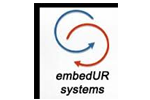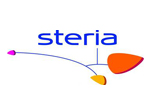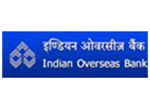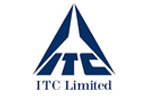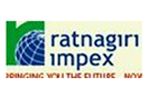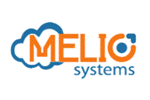About the Department:
The department of Computer Science and Engineering was established in the year 2008 with a sanctioned strength of 60 and the intake was increased to 120 in 2012.Computer science is the study of the theoretical foundations of information and computation, and of practical techniques for their implementation and application in computer systems. The aim of this department is to create quality computer professionals in the nation’s march towards the digital age. The whole faculty team of Computer Science and Engineering Department is working with a sense of responsibility and dedication to excel and achieve success in this era of Computer Science. The Department is equipped with well-established computing Laboratories to offer training in Internet Technologies, Database Applications and Open Source Software. Apart from imparting conventional technical education and rich learning environment, emphasis is laid on co-curricular activities such as seminars, workshops, Guest Lectures, Technical quizzes and Paper presentations to prepare students for highly competitive job market. The department has signed for the campus agreement with Microsoft Corporation and also signed with IBM for Rational suite applications. Also the department aims at establishing strong relationship with the industry so as to bridge the gap between the academia and corporate sector. Also the department aims at cultivating qualities like leadership, teamwork, self-confidence, good communication skills among its students. Being a member of Velammal family, the department is committed to impart quality technical knowledge to meet real world challenges by
- Inviting eminent people from industry/institution
- Making students to participate in research & development
- Career plan programmes to enable the students to achieve their goal
- Advanced class room teaching aids-using Smart Board Classes, LCD Projectors, OHP etc
- Giving projects to students in their curriculum subjects in order to have in depth knowledge about the subject.
Vision:
- To create successful engineers with technical competency and innovative ideas in the field of Computer Science and Engineering.
Mission:
- To achieve academic excellence through effective teaching-learning process to meet the demands of the industry.
- To equip students to face the challenges in the field of Computer Science and Engineering and prepare them as responsible engineers with human values.
- To enrich students with required skills for employability, entrepreneurship and pursuing higher studies.
- To encourage the students to implement innovative ideas for research and development.
Program Educational Objectives (PEOs):
Graduates of Computer Science and Engineering programme will
- PEO – I: Apply their technical competence in computer science to solve real world problems, with technical and people leadership.
- PEO – II: Conduct cutting edge research and develop solutions on problems of social relevance.
- PEO – III: Work in a business environment, exhibiting team skills, work ethics, adaptability and lifelong learning.
Programme Specific Outcomes (PSOs):
Graduates of Bachelor of Computer Science and Engineering will have the ability and capability to
- PSO1: Exhibit design and programming skills to build and automate business solutions using cutting edge technologies.
- PSO2: Strong theoretical foundation leading to excellence and excitement towards research, to provide elegant solutions to complex problems.
- PSO3: Ability to work effectively with various engineering fields as a team to design, build and develop system applications.
Programme Outcomes (POs):
- Engineering knowledge: Apply the knowledge of mathematics, science, engineering fundamentals, and an engineering specialization to the solution of complex engineering problems.
- Problem analysis: Identify, formulate, review research literature, and analyze complex engineering problems reaching substantiated conclusions using first principles of mathematics, natural sciences, and engineering sciences.
- Design/development of solutions: Design solutions for complex engineering problems and design system components or processes that meet the specified needs with appropriate consideration for the public health and safety, and the cultural, societal, and environmental considerations.
- Conduct investigations of complex problems: Use research-based knowledge and research methods including design of experiments, analysis and interpretation of data, and synthesis of the information to provide valid conclusions.
- Modern tool usage: Create, select, and apply appropriate techniques, resources, and modern engineering and IT tools including prediction and modeling to complex engineering activities with an understanding of the limitations.
- The engineer and society: Apply reasoning informed by the contextual knowledge to assess societal, health, safety, legal and cultural issues and the consequent responsibilities relevant to the professional engineering practice.
- Environment and sustainability: Understand the impact of the professional engineering solutions in societal and environmental contexts, and demonstrate the knowledge of, and need for sustainable development.
- Ethics: Apply ethical principles and commit to professional ethics and responsibilities and norms of the engineering practice.
- Individual and team work: Function effectively as an individual, and as a member or leader in diverse teams, and in multidisciplinary settings.
- Communication: Communicate effectively on complex engineering activities with the engineering community and with society at large, such as, being able to comprehend and write effective reports and design documentation, make effective presentations, and give and receive clear instructions.
- Project management and finance: Demonstrate knowledge and understanding of the engineering and management principles and apply these to one’s own work, as a member and leader in a team, to manage projects and in multidisciplinary environments.
- Life-long learning: Recognize the need for, and have the preparation and ability to engage independent and life-long learning in the broadest context of technological change.



























